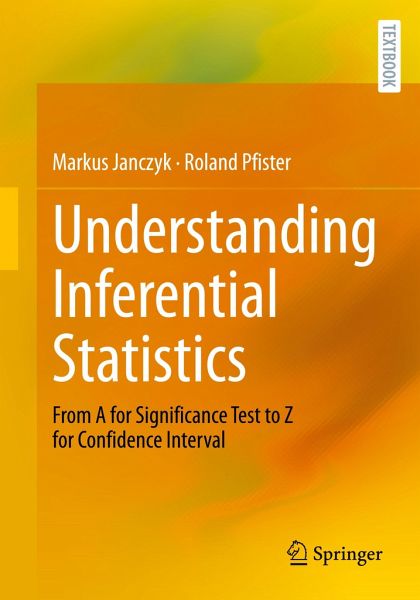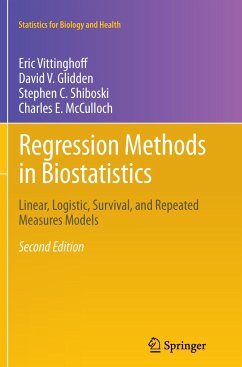
Understanding Inferential Statistics
From A for Significance Test to Z for Confidence Interval

PAYBACK Punkte
10 °P sammeln!
What actually is a p-value for? And what is a significant result? This book answers such questions by providing a compact introduction to inferential statistics. Our major focus is on the logic of inferential statistics and hypothesis testing: We cover the logic behind statistical tests, we then walk through the most common procedures (t-test, analysis of variance with and without repeated measures, correlation/regression) and discuss pitfalls of data analysis. The book thus helps developing a solid understanding of how common test procedures work, and how to interpret their results correctly....
What actually is a p-value for? And what is a significant result? This book answers such questions by providing a compact introduction to inferential statistics. Our major focus is on the logic of inferential statistics and hypothesis testing: We cover the logic behind statistical tests, we then walk through the most common procedures (t-test, analysis of variance with and without repeated measures, correlation/regression) and discuss pitfalls of data analysis. The book thus helps developing a solid understanding of how common test procedures work, and how to interpret their results correctly. Hands-on examples from everyday research - including exemplary calculations with the programs SPSS and R - supplement each chapter. In addition to classical methods, we briefly discuss recent developments in psychological research methods.
This book is a translation of the original German 3rd edition of "Inferenzstatistik Verstehen" by Markus Janczyk and Roland Pfister. It is based on an AI-powered machine translation (by the service DeepL.com), with thorough follow-up editing by both authors.
This book is a translation of the original German 3rd edition of "Inferenzstatistik Verstehen" by Markus Janczyk and Roland Pfister. It is based on an AI-powered machine translation (by the service DeepL.com), with thorough follow-up editing by both authors.














